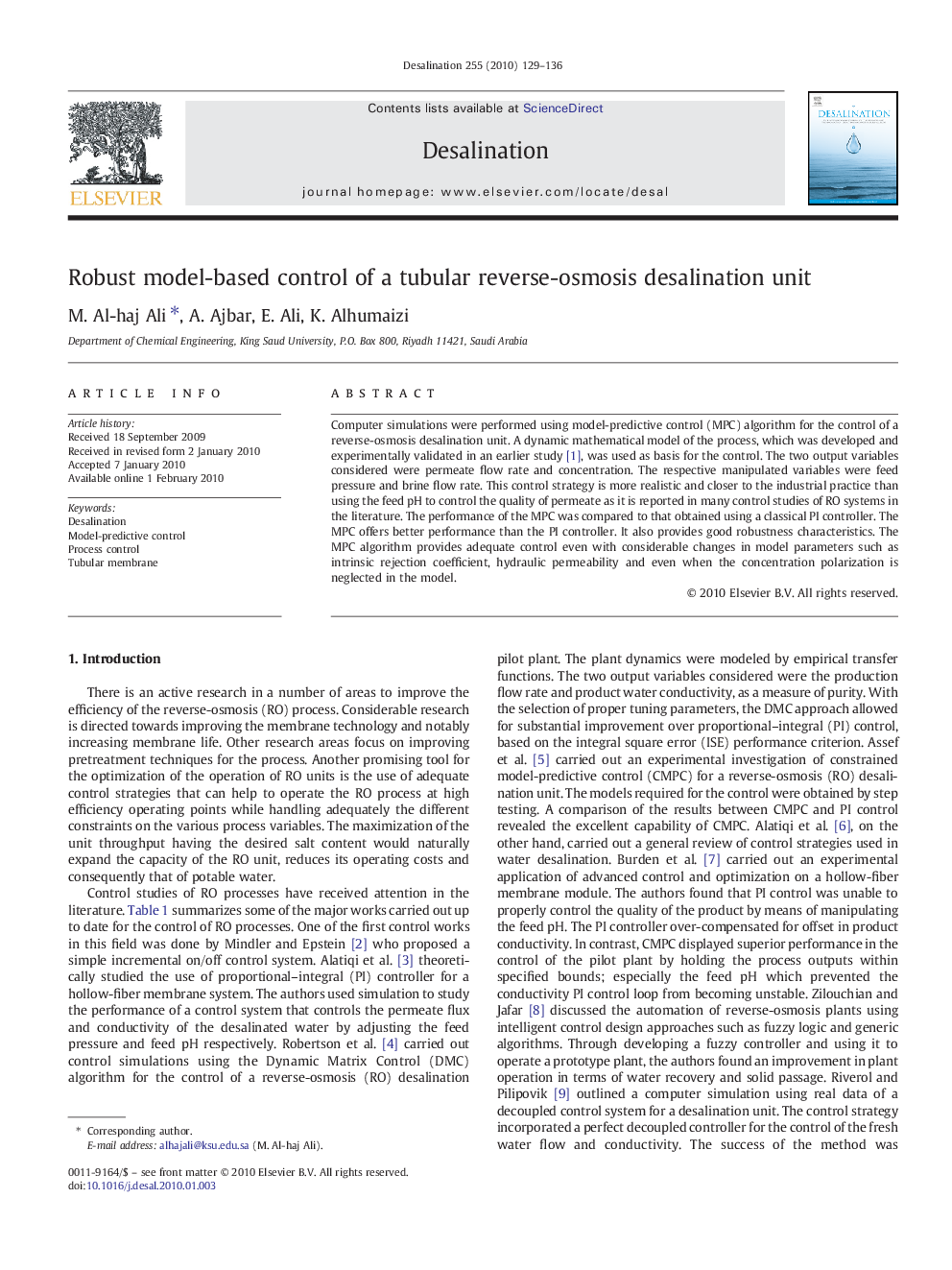| Article ID | Journal | Published Year | Pages | File Type |
|---|---|---|---|---|
| 625866 | Desalination | 2010 | 8 Pages |
Computer simulations were performed using model-predictive control (MPC) algorithm for the control of a reverse-osmosis desalination unit. A dynamic mathematical model of the process, which was developed and experimentally validated in an earlier study [1], was used as basis for the control. The two output variables considered were permeate flow rate and concentration. The respective manipulated variables were feed pressure and brine flow rate. This control strategy is more realistic and closer to the industrial practice than using the feed pH to control the quality of permeate as it is reported in many control studies of RO systems in the literature. The performance of the MPC was compared to that obtained using a classical PI controller. The MPC offers better performance than the PI controller. It also provides good robustness characteristics. The MPC algorithm provides adequate control even with considerable changes in model parameters such as intrinsic rejection coefficient, hydraulic permeability and even when the concentration polarization is neglected in the model.
